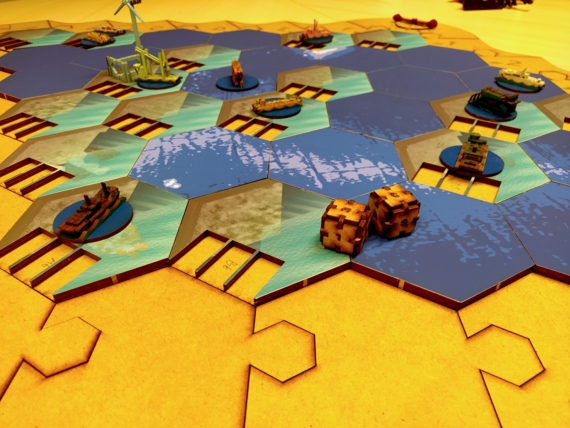WP5 Science Society Policy Dialogue
Fragmentation and integration of international regulatory regimes in the deep sea
Exploration, exploitation and conservation in the Area (the seabed and ocean floor and subsoil thereof, beyond the limits of national jurisdiction) fall under a large array of international regulatory regimes and policies. These include the law of the sea (UNCLOS) and the mandate of the International Seabed Authority (ISA) over the delivery of permits and development of the Mining Code, the biodiversity regime (Convention on Biological Diversity) as well as the new BBNJ (Agreement on the conservation and sustainable use of marine biological diversity of areas beyond national jurisdiction) treaty not yet entered into force. Even the climatic regime (UNFCCC) expresses concerns about the role of the deep sea in climate regulation. LIFEDEEPER will review these international frameworks and will analyze the challenges put by the fragmentation of international law regimes. This topic of fragmentation and attempts for their integration is widely discussed in areas such as maritime traffic or fisheries management. It is only recently that conservation in high seas has emerged as an issue. The case of the deep sea is becoming very high on the political agenda as economic interest voices raise, and interactions with traditional knowledge and practices is put in question. The first two years of the project (2023-2024) will provide a unique opportunity for observation of the adjustments that will occur between these regimes. The ISA is asked to finalize its work on the standardization of mining conditions and the BBNJ negotiations just concluded (2023) leading to the creation of new arenas dealing with conservation and marine genetic resources beyond national jurisdictions. The 2030 framework for biodiversity, which was agreed at the last UN Biodiversity Conference (CBD - COP15 in 2022), also takes the case for conservation in the deep sea.
Deep sea science and technology in society
The history of hydrothermal vent discovery and exploration is a history of science embeddedness in non-scientific (military, geopolitical, economic) concerns. This issue is still topical and scientists often feel trapped in a political emergency (agenda) or inertia that can prevent them from doing basic research in good conditions provided that marine scientific research in the Area is governed by UNCLOS Part XI together now with the new BBNJ Agreement. Actually, scientific activity is not limited to the academic field and scientific results circulate beyond the research ecosystem, in public and policy arenas, where they are transformed, translated, manipulated, distorted, simplified, or even sometimes ignored. Questions of category, classification and delimitation are key in the political and legal fields, as they provide the basis for deciding what is feasible or not, wishable or not, authorized or unauthorized. As regards hydrothermal vents and their potential exploitation for mineral extraction, central questions are their characterization as active or inactive, the spatio-temporal perimeter of hydrothermal plume diffusion, and singularity/connectivity issues among and between sites. A Science and Technology Studies (STS) approach grounded in sociology and anthropology will be implemented to take stock of current scientific debates and observe science-in-the-making within the project, and then analyze the uses and non-uses of scientific results in non-academic fields with a strong focus on the forms of “regulatory science”.
BLUE DiplomaSEA, an experimental scheme for capacity building
The development of a role-play game named BLUE DiplomaSEA as a capacity-building tool to support the implementation of the BBNJ treaty was initiated. The first version of the game addresses the design of Area Based Management Tools (ABMTs) focusing on the regulation of fisheries and maritime traffic for the conservation in the pelagic domain. The development of a trilingual web-based resource center about the governance in high seas was also launched. With LIFEDEEPER, a deep-sea dedicated version of BLUE DiplomaSEA will be developed as well as resources for its deployment as a capacity-building tool. Game Sessions will be organized either with homogeneous targeted groups (industry, administration, researchers, students, NGOs…) or with mixed groups.








